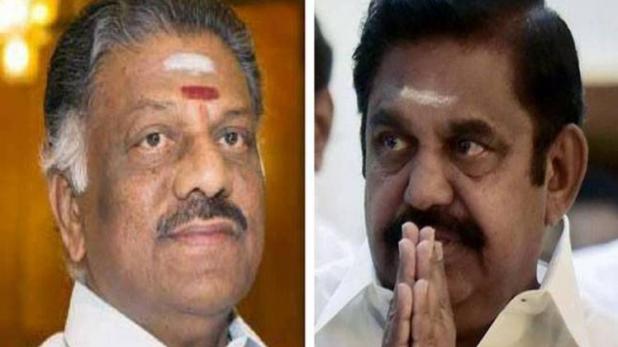The entire state of Tamil Nadu was celebrating the merger of the EPS and OPS factions of AIADMK on 21 Aug, but the joy seemed to be very short lived.
Soon after the merger TT Dhinakaran, nephew of a close acquaintance of Sasikala began to take actions against the merged AIADMK. After the demise of former Chief Minister Jayalalithaa, there was a quest to contest the Chief Minister’s post. Three major leaders were seen as the possible successor of Jayalalithaa, O Panneerselvam, E. Palaniswamy and TT Dhinakaran.
As per the recent changes in the political equations of Tamil Nadu, the OPS and EPS factions led by O Panneerselvam and E. Palaniswamy respectively merged on the conditions of expelling Shasikala and her family members from the party. However, both Sasikala and Dhinkaran still continue to me the party members with the latter being the pain for the party.
To make his political presence be felt in the state and to claim his power in the party, Dhinakaran has been taking a few steps to break the recent merger and pull the Chief Minister down. 19 MLAs supporting Dhinakaran camp had individually written a letter to the Governor of Tamil Nadu stating that they do not have confidence in the incumbent Chief Minister E. Palaniswamy and demanded him to prove his majority in the floor test. The governor had however tactfully shifted the floor test to be held next month giving time to AIADMK to lure in the some of the 19 MLAs who are currently hosted in a resort in Puducherry, from Dhinakaran camp to win the floor test.
AIADMK had convened a party meeting on Monday to take the decision on expelling Sasikala and Dhinakaran but the meeting was more of a shock for the party as 27 more MLAs apart from the 19 Dhinakaran camp MLAs had skipped the EPS-OPS meeting. After the complete failure of the Monday meeting, both the factions decided to hold the party general council and executive committee meeting on September 12.
A statement issued from the party headquarters on Monday evening read that “Following the demand from a majority of the party cadres, the general council and executive committee will be convened according to the party by law, rule 19, section 7.” Another statement issued by the EPS-OPS factions ordered that it is mandatory for all the executive committee members, district office-bearers, secretaries of unions, towns, area and town panchayats and that of other states to attend the general council meeting. Informing about the venue and other details, it said that the meeting will be headed by party praesidium chairman E Madhusudhanan at 10.35am in Vanagaram on 12 Sept.
According to the party by rule, the general council meeting should be held once a year with a notice given to all the members regarding the meeting 15 days in advance. The party general secretary may also conduct the meeting more than once if the need arises.
Apart from the fight for power the other major changes taking place in Tamil Nadu politics is TT Dhinakaran shuffling the party members posts and designations. During the meeting held on Monday AIADMK also announced that the party no more recognize Dhinakarn as the party deputy general secretary hence all the appointments made by him will be invalid. EPS-OPS faction said, “This meeting resolves that all those appointed by Puratchi Thalaivi Amma and those who attained their positions through elections will continue to function in the same positions.”
AIADMK last week had removed TT Dhinakaran from the post of the deputy general secretary of the party on the grounds of him violating the party rules.
Apart from this other discussion that was held during the meeting was the actions that should be taken to legally take over Namadhu MGR, and Jaya TV as the party claims the organisations to be their property. “They are properties of the party, floated with the untiring efforts of Amma and with the contributions from lakhs of cadres,” it said. While on the other hand, Jaya TV chief executive officer, Vivek Jayaraman, son of Ilavarasi, who is currently in jail with Sasikal claimed it to private properties and said that no one could take over these organisations.

